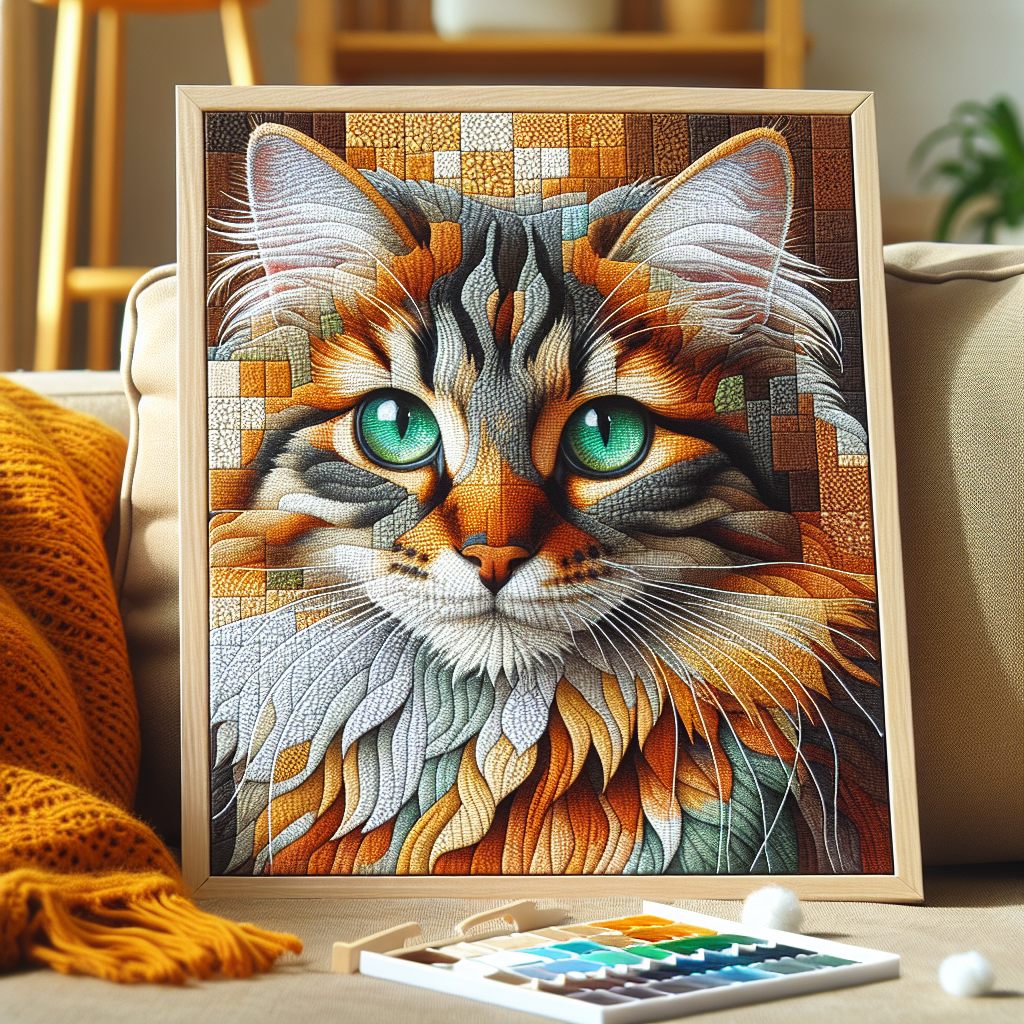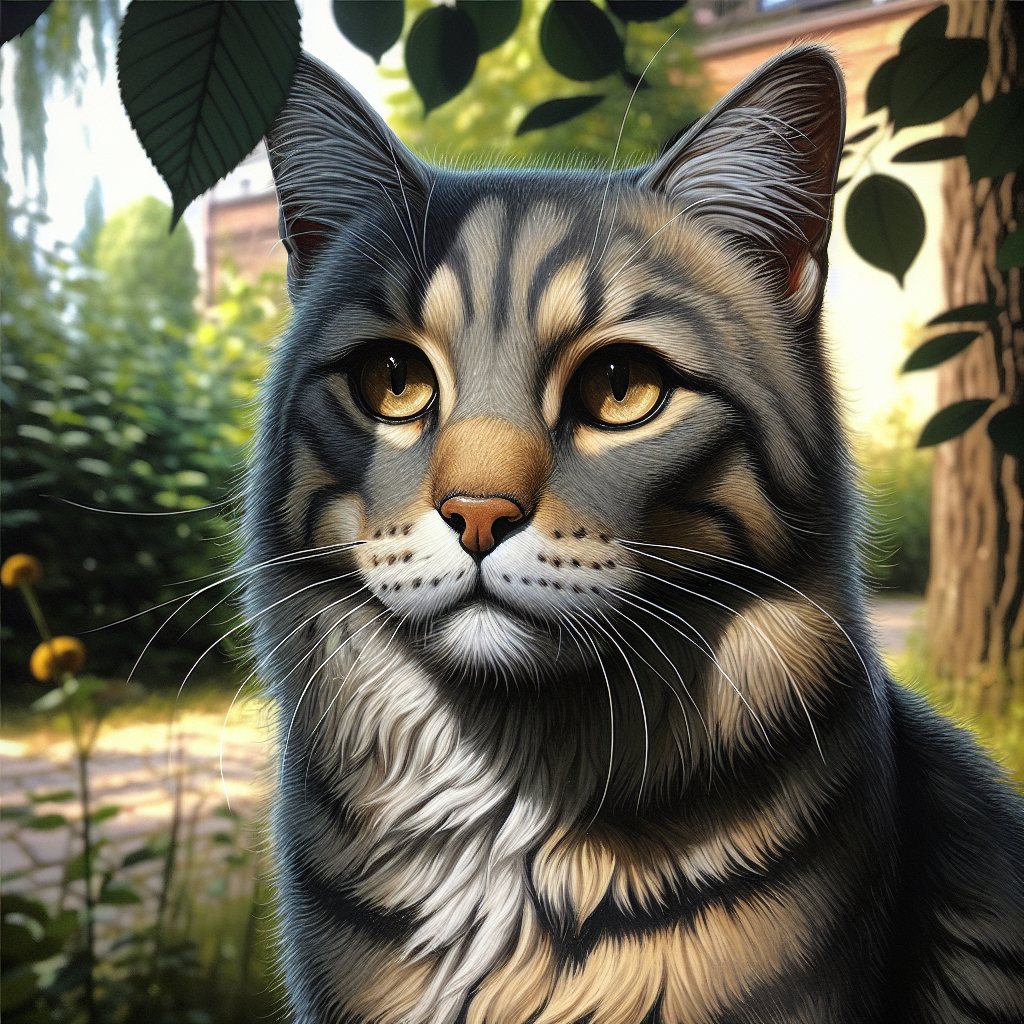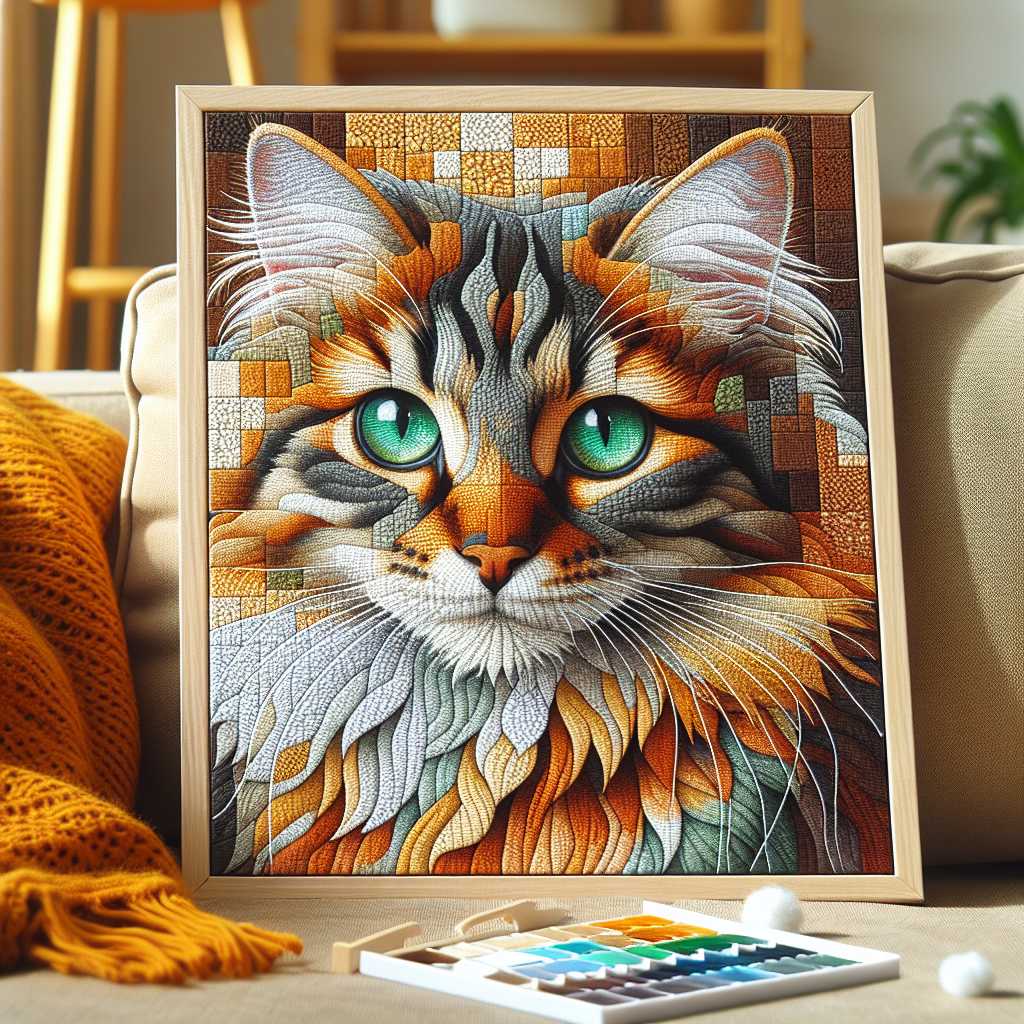Have you ever wondered what a male tabby cat is called? Well, the answer might surprise you. Unlike many other male animals, there is no specific name for a male tabby cat. In fact, tabby cats are simply referred to as “male tabby cats.” However, what sets tabby cats apart from other felines is their unique coat pattern, characterized by distinctive stripes or swirls. So, next time you come across a male tabby cat, you can now appreciate their individuality and admire their striking appearance.
Tabby Cat Basics
What is a tabby cat?
A tabby cat is not a specific breed of cat, but rather a coat pattern that can be found in various breeds. Tabby cats are known for their distinctive coat patterns, which consist of stripes, swirls, spots, or a combination of these patterns. They are one of the most common types of cats and can be found in different colors and markings.
Characteristics of tabby cats
Tabby cats are known for their unique coat patterns, but they also have certain physical characteristics that are common among them. They usually have an average-sized body, with a round head, almond-shaped eyes, and a medium-length tail. Their fur is often soft and dense, providing them with warmth and protection. Tabby cats are also known for their friendly and sociable nature, making them popular pets among cat lovers.
Tabby cat coat patterns
Tabby cats can have a variety of coat patterns, each with its own unique characteristics. The most common coat patterns include:
-
Classic Tabby: This pattern is characterized by bold, swirling patterns on the cat’s sides, with a distinctive “bullseye” pattern on their sides and back.
-
Mackerel Tabby: This pattern consists of narrow, vertical stripes on the cat’s body, resembling the markings of a fish skeleton.
-
Spotted Tabby: As the name suggests, this pattern features spots scattered across the cat’s body, giving them a leopard-like appearance.
-
Ticked Tabby: This pattern is characterized by agouti hairs, which are individual hairs with different bands of color. This creates a speckled or “salt and pepper” effect on the cat’s fur.
Each tabby cat’s coat pattern is unique, making them easily distinguishable and adding to their overall charm.
Understanding Male Tabby Cats
Male vs. Female tabby cats
When it comes to tabby cats, there are a few key differences between males and females. Male tabby cats tend to be larger in size compared to their female counterparts. They also tend to have broader heads and a more muscular build. Additionally, male tabbies are more likely to display territorial and dominant behaviors, especially if they have not been neutered.
Distinctive features of male tabbies
Male tabbies often have certain physical features that distinguish them from female tabbies. One of the most notable features is their jowls, which are more prominent in males due to their larger size. Male tabbies may also have a thicker neck and a wider face compared to females. These physical features give male tabbies a more robust and masculine appearance.

What is a Male Tabby Cat Called
The common name for a male tabby cat
The common name for a male tabby cat is simply “tabby cat.” The term “tabby” is used to describe the cat’s coat pattern, regardless of its gender. So, whether male or female, if a cat has a tabby coat pattern, it can be referred to as a tabby cat.
Alternative names for male tabby cats
While the common name for a male tabby cat is “tabby,” there are a few alternative names that are sometimes used. These include:
-
Tomcat: This name originated from the term “tom,” which refers to a male cat. Tomcats are known for their independence and sometimes feisty nature.
-
Stud: This name is often used to describe male cats that are kept for breeding purposes. It emphasizes their role as potential fathers of future litters.
-
Ginger or Orange Tabby: These names specifically refer to male tabby cats with a reddish or orange coat color. Ginger or orange tabbies are known for their vibrant and eye-catching appearance.
Origin of the name ‘tabby’
The term “tabby” originated from a type of silk fabric that was commonly imported from Baghdad to Europe during the Medieval period. The fabric had a striped or swirled pattern, similar to the coat patterns of tabby cats. Over time, the term “tabby” was adopted to describe cats with similar patterns.
Historical references to male tabby cats
Historically, male tabby cats have been mentioned in various cultures and works of literature. In ancient Egyptian art, tabby cats, both male, and female, were often depicted as symbols of fertility and protection. In Norse mythology, the goddess Freyja was said to have a chariot pulled by two large male tabby cats, emphasizing their strength and power. These references highlight the enduring fascination with male tabby cats throughout history.
Types of Male Tabby Cats
Classic Tabby Cats
Classic tabby cats have a bold pattern that resembles a marble-like swirl on their sides and back. The swirls often converge into a distinct “bullseye” pattern on their sides. These tabbies may also have lines running down their spine and a small mark resembling a “M” on their forehead.
Mackerel Tabby Cats
Mackerel tabby cats have narrow, vertical stripes running down their sides, reminiscent of the markings on a fish skeleton. The stripes are evenly spaced and can extend from the neck all the way down to the tail. This pattern gives them a sleek and agile appearance.
Spotted Tabby Cats
Spotted tabby cats have various-sized spots scattered across their body, similar to the coat pattern of a leopard. These spots can be round or oval-shaped and can vary in coloration. The spots give these tabbies a wild and exotic look.
Ticked Tabby Cats
Ticked tabby cats have a unique coat pattern where each hair is banded with different colors, creating a speckled or “salt and pepper” appearance. From a distance, these tabbies may appear to have a solid color, but upon closer inspection, the individual hairs show a range of colors. This pattern adds depth and texture to their coat.

Physical Characteristics of Male Tabby Cats
Distinctive coat patterns
One of the most prominent physical characteristics of male tabby cats is their distinct coat patterns. Whether it’s the bold swirls of the classic tabby, the narrow stripes of the mackerel tabby, the spots of the spotted tabby, or the speckled appearance of the ticked tabby, these coat patterns make male tabbies easily recognizable and unique.
Color variations in male tabby cats
Male tabby cats can come in various colors, adding to the diversity amongst them. Common color variations include brown, gray, cream, and red. While brown tabbies are the most prevalent, red or ginger tabbies are particularly striking with their vibrant orange coat.
Eye colors of male tabby cats
Eye color in male tabby cats can also vary. It is not directly linked to their coat pattern but rather depends on their genetics. Male tabbies can have eye colors ranging from green and gold to amber and copper. The combination of eye colors with their coat patterns creates a visually appealing and captivating look.
Personality Traits of Male Tabby Cats
Temperament of male tabbies
Male tabby cats are known for their friendly and sociable nature. They are often characterized as being outgoing and curious, always ready to explore their surroundings. Male tabbies also tend to be more independent compared to female tabbies, while still maintaining an affectionate bond with their human companions.
Playfulness and energy levels
Male tabbies are generally playful and have high energy levels. They love interactive playtime and enjoy engaging with toys and their human counterparts. Providing them with plenty of toys and opportunities to exercise their hunting instincts can help keep them mentally and physically stimulated.
Affectionate nature
Despite their playful nature, male tabbies are also known for their affectionate side. They often form strong bonds with their human family members and enjoy cuddling and being petted. Male tabbies are known to display their affection through gentle headbutts, purring, and rubbing against their loved ones.
Social behavior with humans and other pets
Male tabbies typically get along well with humans and other pets when properly introduced and socialized. They are generally tolerant and accepting of new additions to the household, including other cats or even dogs. However, like any cat, their personalities can vary, so it is important to consider individual temperaments and preferences when introducing them to new environments or companions.
Caring for Male Tabby Cats
Nutritional needs
Providing a balanced and nutritious diet is essential for the overall health and well-being of male tabby cats. High-quality cat food that meets their specific dietary requirements, including proteins, fats, and carbohydrates, is recommended. It is important to consult with a veterinarian to determine the appropriate portion sizes and dietary needs based on the individual cat’s age, activity level, and overall health.
Grooming requirements
Male tabby cats have moderate grooming needs. Regular brushing helps to remove loose fur, prevent matting, and reduce shedding. This not only keeps their coat clean and healthy but also helps to minimize hairballs. Additionally, routine nail trims, teeth brushing, and ear cleaning are important aspects of grooming male tabbies to maintain their overall hygiene.
Exercise and playtime
As active and playful cats, male tabbies require regular exercise and playtime to keep them physically and mentally stimulated. Interactive toys, puzzle feeders, and designated play areas can help provide them with the mental and physical enrichment they need. Engaging in daily play sessions with their human companions also contributes to strengthening the bond between the cat and their owner.
Health considerations for male tabbies
While male tabby cats are not inherently more prone to health issues compared to other cats, it is important to prioritize their overall health and well-being. Regular veterinary check-ups, vaccinations, and preventive care measures, such as parasite control and dental hygiene, are essential. Neutering male tabby cats can also help prevent certain health problems and behavioral issues, such as aggression and territorial marking.
Common Myths and Misconceptions
Male tabby cats are always more aggressive
One common misconception is that male tabby cats are always more aggressive than their female counterparts. While unneutered male cats may be more territorial and exhibit aggressive behaviors, neutering significantly reduces these tendencies. Each cat has an individual personality, and aggression is not solely determined by gender or coat pattern.
Male tabbies cannot have certain coat patterns
Another myth is that certain coat patterns are limited to either male or female tabbies. In reality, coat patterns are not gender-specific and can be found in both male and female tabby cats. Whether it’s a classic, mackerel, spotted, or ticked coat pattern, male tabbies can exhibit any of these variations.
Tabby cats are a separate breed
A common misconception is that tabby cats are a specific breed. In fact, tabby is a coat pattern that can be found in various cat breeds, including domestic shorthairs, Maine Coons, and Abyssinians, among others. The term “tabby” refers to the coat pattern rather than a specific breed.
Male tabbies are less prone to health issues
There is no scientific evidence to suggest that male tabby cats are inherently less prone to health issues compared to other cats. While certain genetic and environmental factors may influence a cat’s health, it is important to prioritize regular veterinary care, proper nutrition, and a safe and stimulating environment for all cats, regardless of their gender or coat pattern.
Male Tabby Cat Names
Popular male tabby cat names
Finding the perfect name for your male tabby cat can be a fun and creative process. Some popular names for male tabbies include:
- Oliver
- Leo
- Max
- Charlie
- Milo
- Jasper
- Toby
- Simba
- Oscar
- Rocky
These names reflect a combination of classic and trendy choices and can suit the unique personality of your male tabby cat.
Choosing a name for your male tabby
When choosing a name for your male tabby, consider their appearance, personality traits, and any unique characteristics they may have. Different names can evoke different feelings or associations, so choose a name that resonates with both you and your cat. Take your time, explore different options, and most importantly, choose a name that you and your male tabby cat will love.
Famous Male Tabby Cats
Iconic male tabbies in popular culture
Male tabby cats have made appearances in popular culture, becoming beloved characters in books, movies, and cartoons. Some iconic male tabbies include:
-
Garfield: Garfield is a lasagna-loving, lazy, and sassy tabby cat who became famous through a comic strip created by Jim Davis. His witty remarks and humorous escapades have entertained readers worldwide.
-
Puss in Boots: This charismatic and adventurous tabby cat is a character from the Shrek franchise. Known for his charming personality, deep voice, and iconic “sad eyes,” Puss in Boots has captured the hearts of many.
Celebrity-owned male tabby cats
Celebrities are also known to adore their furry feline friends, and some have owned male tabby cats. These celebrity-owned male tabbies include:
-
Taylor Swift’s Olivia: Taylor Swift’s Scottish Fold tabby, Olivia, gained fame through Swift’s social media posts. Olivia’s striking looks and playful antics have stolen the hearts of Swift’s fans.
-
Hugh Jackman’s Allegra: Hugh Jackman’s adopted tabby, Allegra, often accompanies him on his adventures. Jackman has shared their outings on social media, showcasing their undeniable bond.
These famous male tabbies remind us of the joy and companionship that tabby cats bring into our lives, regardless of their gender or coat pattern.

